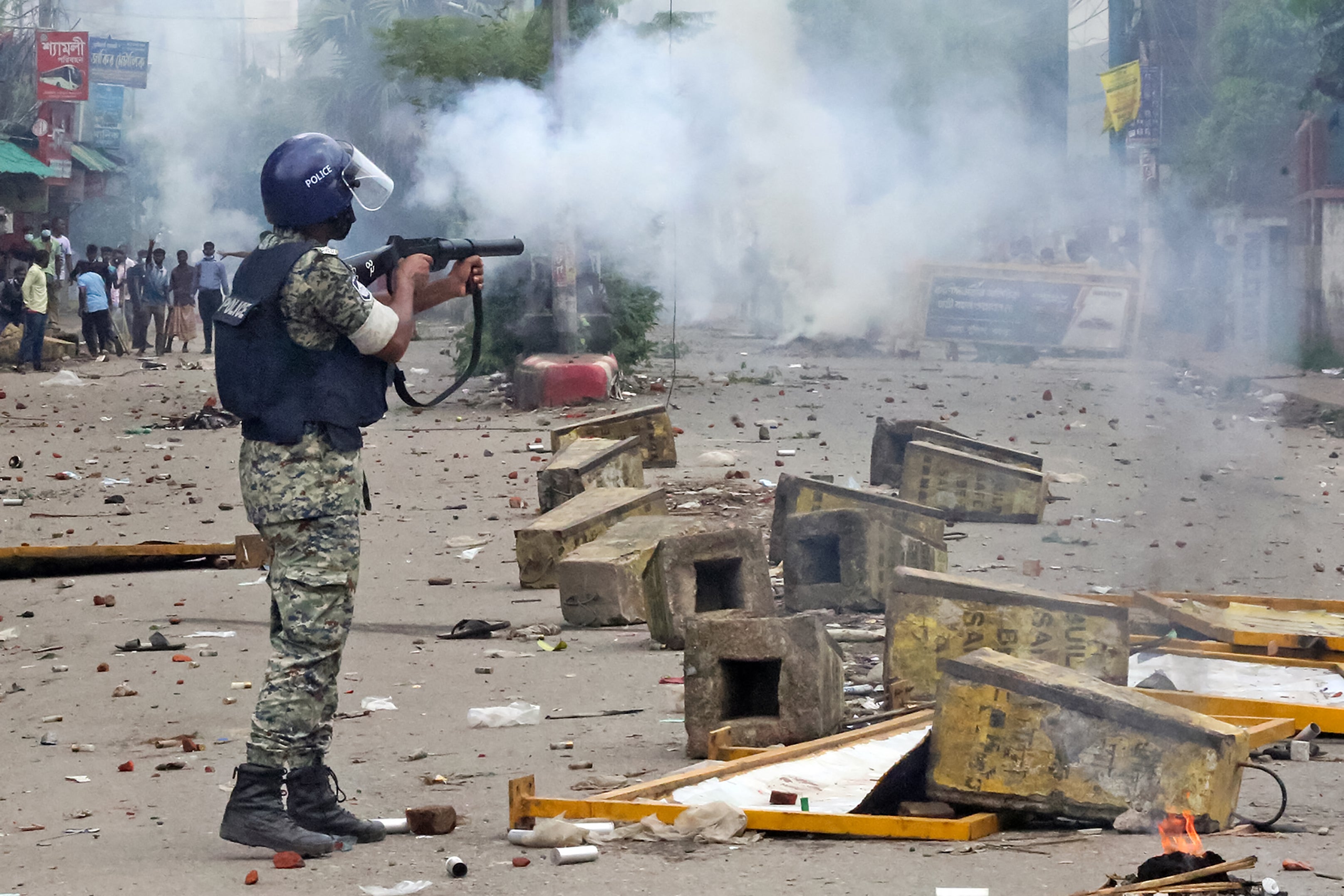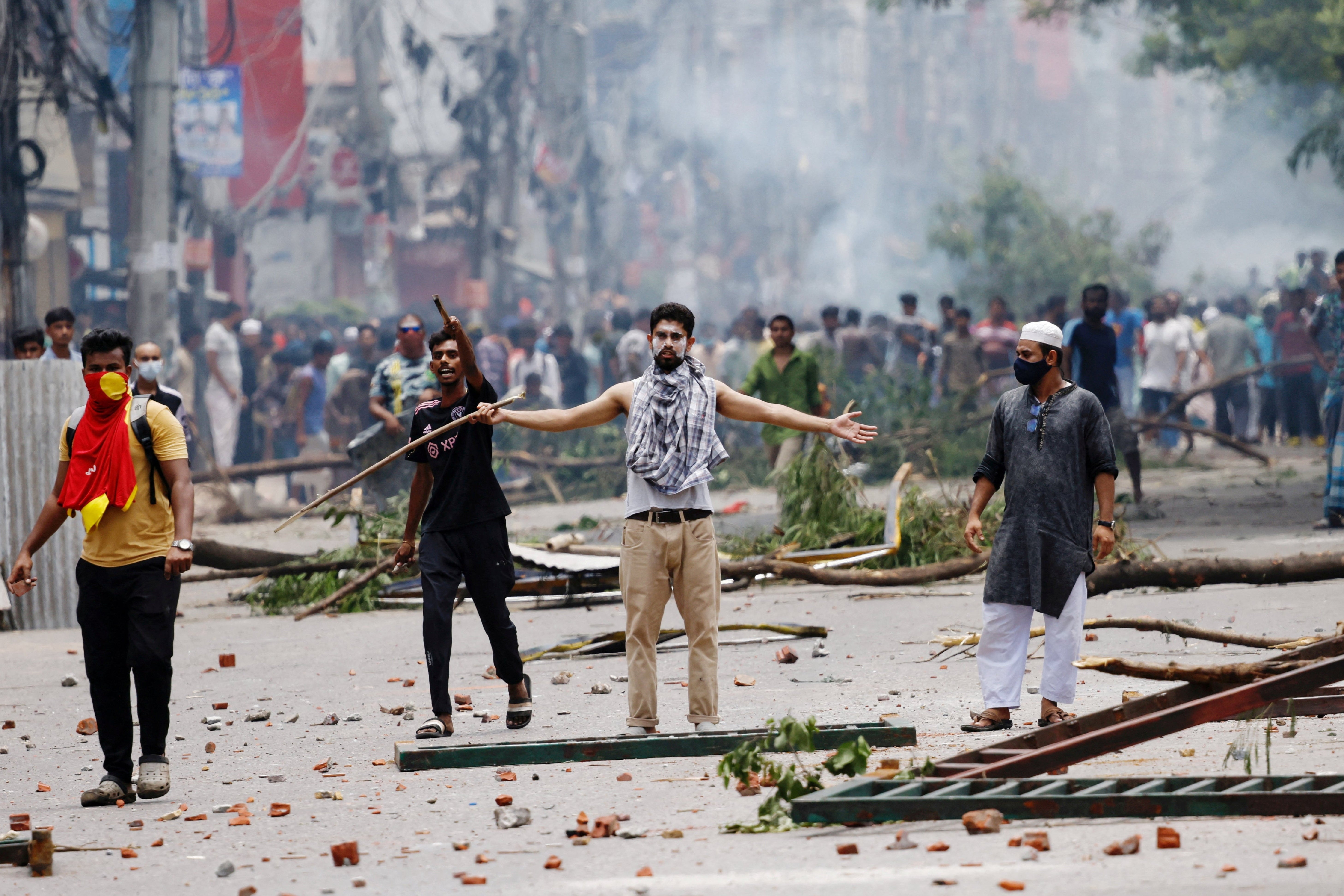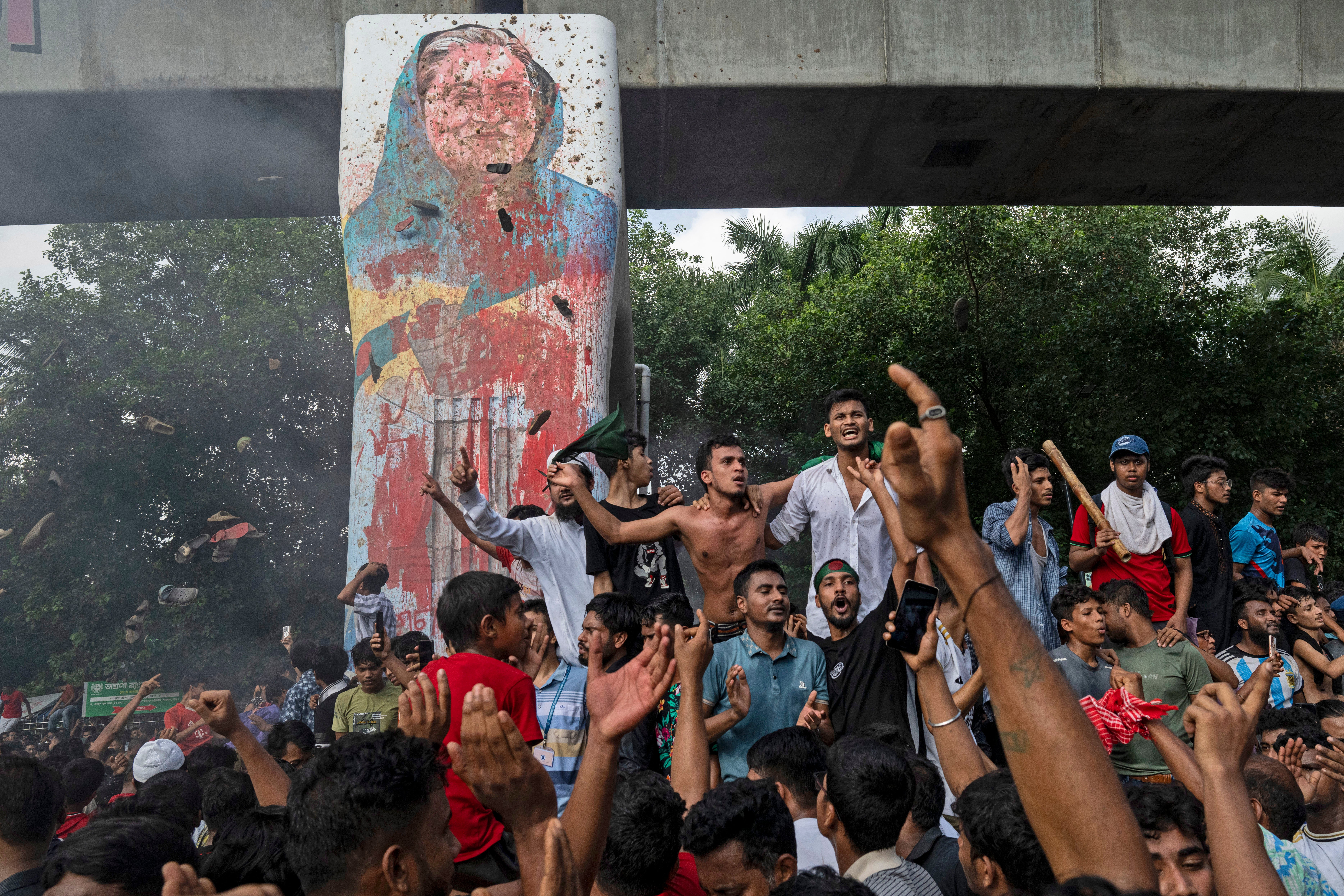Your support helps us to tell the story
From reproductive rights to climate change to Big Tech, The Independent is on the ground when the story is developing. Whether it’s investigating the financials of Elon Musk’s pro-Trump PAC or producing our latest documentary, ‘The A Word’, which shines a light on the American women fighting for reproductive rights, we know how important it is to parse out the facts from the messaging.
At such a critical moment in US history, we need reporters on the ground. Your donation allows us to keep sending journalists to speak to both sides of the story.
The Independent is trusted by Americans across the entire political spectrum. And unlike many other quality news outlets, we choose not to lock Americans out of our reporting and analysis with paywalls. We believe quality journalism should be available to everyone, paid for by those who can afford it.
Your support makes all the difference.
Sheikh Hasina’s crackdown on protests that brought down her government in Bangladesh last year was marked by systematic attacks and deadly violence and potentially constituted “crimes against humanity”, the UN said.
The Office of the United Nations High Commissioner for Human Rights said in a new report the brutal response to the protests was a “calculated and well-coordinated strategy” by the Hasina government to cling on to power.
It estimated that nearly 1,400 people were killed and thousands injured in the protests between 1 July and 15 August. Ms Hasina fled to India on a military helicopter after the protesters stormed her residence in Dhaka and her Awami League party’s government collapsed.
The protests started as a movement, led by students, against public sector job quotas but quickly morphed into a nationwide uprising against Ms Hasina, who had ruled the country since 2009.
The former prime minister and her government have since faced allegations of arbitrarily arresting, torturing, killing and disappearing protesters.

“There are reasonable grounds to believe hundreds of extrajudicial killings, extensive arbitrary arrests and detentions, and torture, were carried out with the knowledge, coordination and direction of the political leadership and senior security officials as part of strategy to suppress the protests,” UN human rights chief Volker Turk told a news conference in Geneva.
“The testimonies and evidence we gathered paint a disturbing picture of rampant state violence and targeted killings that are amongst the most serious violations of human rights, and which may also constitute international crimes.”

The report said the security forces under Ms Hasina’s government were involved in deliberately and impermissibly killing or maiming protesters.
It cited the example of Abu Sayed, a protester who was filmed during the agitation shouting “shoot me” at police with his arms spread. Forensic analysis revealed that he was shot with shotguns loaded with pallets from close range, amounting to “deliberate extrajudicial killing by the police”.

“It’s a very brutal read,” Mr Turk said of the new report, “78% of the over 1,000 people killed was by firing – military rifles, shotguns with pellets.”
Many protesters, he added, suffered “horrific” injuries.
The report came out of a UN fact-finding mission that visited Bangladesh at the invitation of the interim government led by Nobel Peace Prize winner Muhammad Yunus.
The interim government in a statement expressed “deep regret” at the UN report and reiterated its commitment “to prosecute all perpetrators of violence”.

